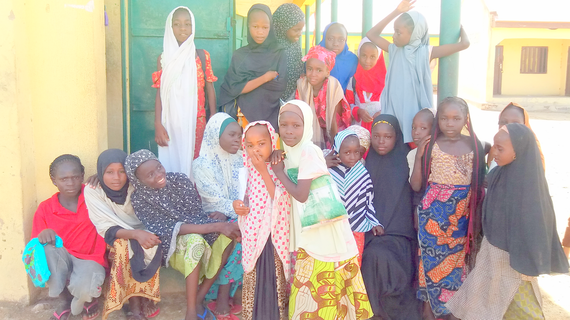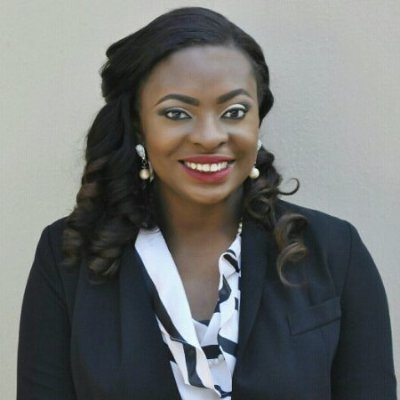By Chioma Okwudiafor,
Programs Analyst (Education and Communications), Oando Foundation
"As I hid under my pillow in our little house in Buni Gari, a small town in the farthest part of Northern Nigeria, the sound of gunshots and loud cries of babies and their mothers filled the air. In the blink of an eye, the dreaded insurgents had burnt down my village. My father and brother were killed; my school at the entrance of the village was razed. At the break of dawn, my mother and I packed sparse clothing, and sadly I said goodbye to the only home we had known as we began our journey into the unknown. A once lively 12-year-old girl with the whole world ahead of her: I was now a girl with dashed hopes. My name is Amina and millions of children like me around the world suffer this fate."- Amina Ali, 12, Nigeria
Education is a fundamental human right, which is crucial to the realisation of all other human rights. Years of conflict and civil unrest have negatively impacted the education sector, leaving millions of children like Amina deprived of educational opportunities. On the day of the African Child, 2016, our call to action as a foundation set up by Nigeria's largest independent company in the energy industry is clear: conflict should never be a barrier to education. There is no excuse for giving children a lifetime of disadvantage.
One of conflict's particularly potent effects on education is the increase in attacks on schools. As children, teachers, and school buildings become the targets of attacks, parents fear sending their children to school. Girls are particularly susceptible to sexual violence and abduction. Statistics from the National Emergency Management Agency of Nigeria reveal that the conflict in Northern Nigeria has left over 10,000 schools damaged, 19,000 teachers displaced and 800,000 children without access to education. Humanitarian crisis is escalating in several parts of the world and the amount of aid allocated to education is dwindling. Collective action and advocacy from all stakeholders is key to cushioning the effect of conflict on education. That's why we are a part of the Global Business Coalition for Education. We need organizations that represent key private sector investors in education to strengthen and elevate efforts lead by business.
The Oando Foundation and Educate A Child (EAC) partnership is a sterling example of how organisations can partner to protect the rights of children in conflict-ridden areas. With a mandate to improve the quality of learning in schools across Nigeria, the Foundation is enrolling 60,000 out-of-school children in school by 2018. We are bridging the gap caused by conflict and providing access to quality education. In northern Nigeria, the enrolment ratio of girls to boys range from 1 girl to 2 boys and 1 to 3 in some states. With the rise in the number of internally displaced persons (IDPs), there is a need to address the obstacles to social and economic reintegration, educational attainment faced by the IDPs.
EAC is co-funding projects in 46 schools across nine Northern Nigerian states, through the Foundation's Adopt-a-School Initiative. Results from Oando Foundation's project interventions in Adamawa, Bauchi and Taraba states show that majority of IDPs flee to neighbouring communities whose education systems and structures are already weak and face limited capacity to support new intakes. Oando Foundation is strengthening and improving the capacity of schools to absorb IDPs and out of school children. As part of a series of planned interventions, the Foundation's distributed education starter kits to help reintegrate children in school. Working with state governments and institutions like the USAID Education Crisis Response in Nigeria, our efforts will help mainstream children like Amina to formal school and provide them with educational resources to re-enroll.
The Foundation is embarking on out-of-school enrolment drives in the communities and ensuring that walk-in centres are created in each adopted school. By 2018, our interventions will place 60,000 out of school children in schools and improve learning environments for over 75,000 public primary schools across Nigeria by enhancing educational infrastructure. We will also build capacity for teachers and community members as well as award scholarships to students with special focus on girls from our adopted schools, to serve as a further incentive to complete primary education and transition to secondary school. Now, on Day of the African Child, we are calling on business leaders everywhere to support learning for all children in Africa -- and across the world.
Chioma joined Oando Foundation in 2013 and works as a program analyst. She manages the implementation of the Adopt a School Initiative in 8 states across the North East, South East of Nigeria. She also manages program communications for the Foundation.


